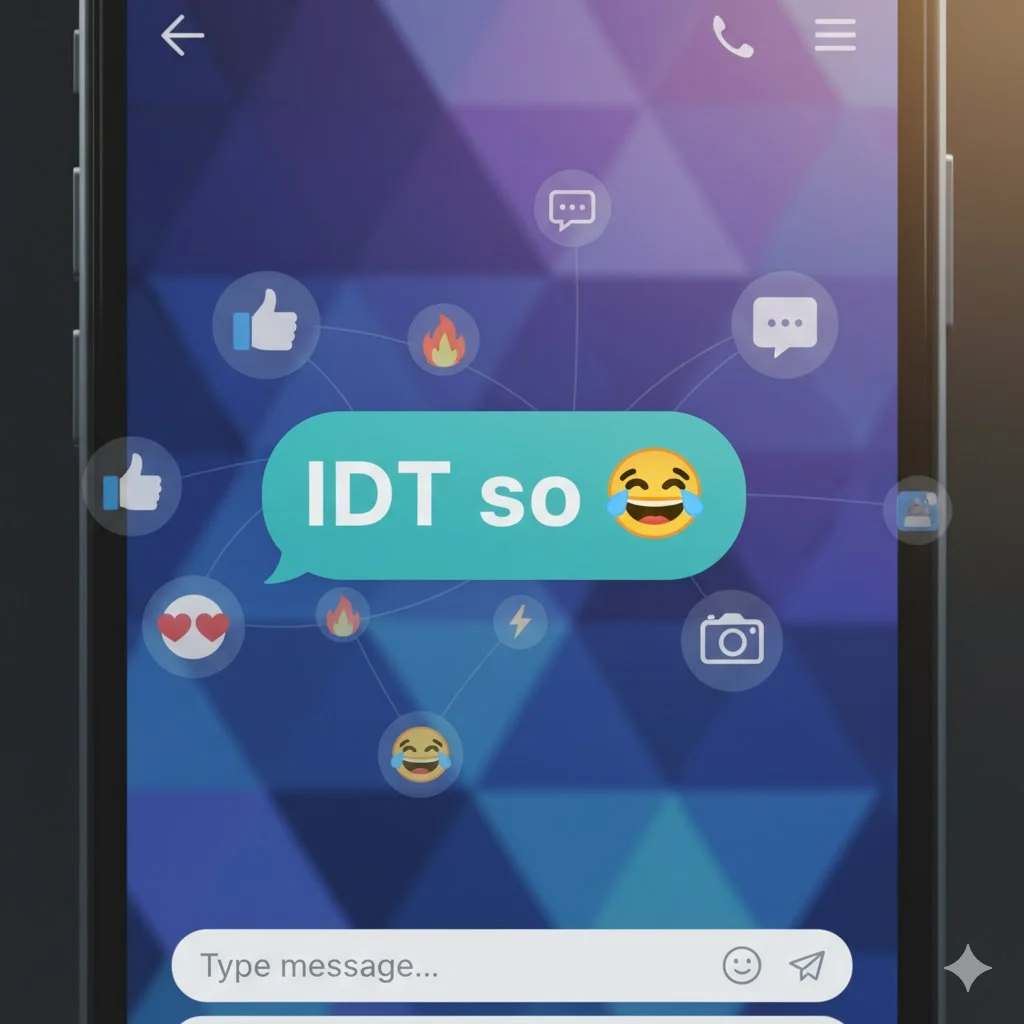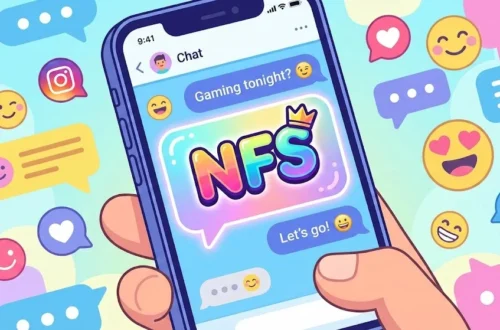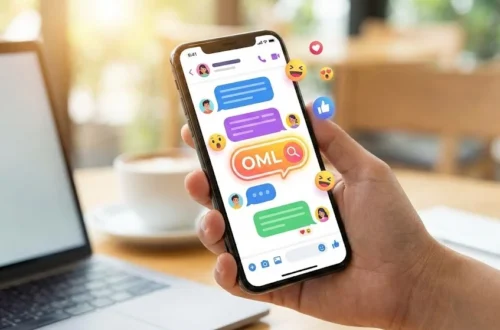Hey there, texter! 👋 Ever gotten a message that said “IDT” and felt totally lost? You’re not alone. Whether you’re chatting on WhatsApp, gaming online, or scrolling through social media, abbreviations like IDT pop up everywhere — and knowing what they mean can make or break your reply.
This guide is for you — the everyday messenger, gamer, or social media fan who wants to understand modern texting slang and respond confidently.
We’ll unpack what IDT means, how it’s used, where it came from, and how to reply like a pro. You’ll also learn when it’s okay to use and when to skip it. By the end, you’ll be reading your DMs like a decoding expert.
Definition & Meaning
Let’s start simple: What does IDT mean in text?
IDT stands for “I Don’t Think.”
It’s a short, casual way to express uncertainty, doubt, or mild disagreement during texting or online conversations.
It’s basically a quicker way to say:
- “I don’t think so.”
- “Probably not.”
- “I doubt it.”
Examples in Real Conversations
Alex: “Do you think they’ll show up?”
Taylor: “IDT so 😅”
Gamer 1: “We can win this round!”
Gamer 2: “IDT we can with this lag 😩”
Jamie: “Did he mean it seriously?”
Morgan: “IDT he did tbh.”
See how smooth that is? IDT keeps your text short, friendly, and natural. It’s perfect for quick replies where you don’t want to sound harsh — just uncertain.
Background & History
Text slang like IDT came from one simple need: speed.
When people first started texting, typing full sentences on tiny phone keypads was annoying. So shortcuts like BRB, LOL, and IDK (I Don’t Know) became popular.
IDT followed naturally. Instead of writing out “I don’t think,” people shortened it to IDT — fast to type, easy to read, and perfectly clear in context.
Now, IDT is a part of modern texting language used worldwide. You’ll find it in:
- Text messages
- Social media comments
- Online gaming chats
- Group messages
- Even casual emails among friends
It’s one of those slang terms that bridge the gap between polite disagreement and friendly uncertainty — a modern digital middle ground.
Usage in Various Contexts
IDT can appear in tons of different settings. Let’s explore how people use it in day-to-day conversations 👇
1. Texting Friends
Liam: “You think she’s mad at me?”
Ava: “IDT she is, you’re overthinking 😅”
Mark: “Should I go for it?”
Dylan: “IDT that’s a good idea rn.”
It’s casual, friendly, and keeps the conversation moving.
2. Social Media Comments
You might see posts like:
- “IDT he’s serious about that deal 😂”
- “IDT she meant it that way.”
- “Cute idea but IDT it’ll work.”
Here, IDT is a reaction word — short, neutral, and expressive.
3. Gaming or Group Chats
Player1: “We can still make a comeback!”
Player2: “IDT so, they’re too far ahead.”
Gamers love abbreviations like IDT — it saves time during intense moments.
4. Light Professional Conversations
In semi-formal chat spaces like Slack or Teams (with familiar coworkers):
“IDT that update will fix the issue — let’s double-check tomorrow.”
Used this way, it’s still professional — just concise.
Common Misconceptions & Clarifications
Like most abbreviations, IDT can be misunderstood. Let’s clear up a few myths 👇
❌ Misconception 1: IDT = IDK
Nope — IDK means “I don’t know.”
IDT means “I don’t think.”
They sound similar but express very different levels of certainty.
- IDK: No knowledge at all.
- IDT: You have an opinion — you just doubt something.
❌ Misconception 2: IDT Sounds Rude
Not really. IDT is neutral. It softens disagreement in text form. Instead of bluntly saying “No,” you’re saying “I don’t think so,” which sounds gentler.
❌ Misconception 3: IDT Has Multiple Meanings
In texting, IDT almost always means “I don’t think.”
Some people online might jokingly make up other meanings, but in real use, this one dominates.
Similar Terms & Alternatives
Here’s a list of words and phrases people use instead of IDT, depending on tone 👇
| Term / Slang | Meaning / Use | Tone |
|---|---|---|
| IDK | I don’t know | Neutral |
| IMO | In my opinion | Thoughtful |
| TBH | To be honest | Honest, open |
| Probs not | Probably not | Casual |
| Don’t think so | Full version | Neutral |
| Nah / Nope | No | Informal |
| Maybe not | Uncertain | Soft |
You can switch between these depending on how serious or casual you want to sound.
How to Respond to IDT
When someone sends IDT, your response depends on what they’re doubting. Here are a few natural ways to reply 👇
1. Casual / Friendly
Friend: “IDT we’ll make it in time.”
You: “We’ll see! Let’s rush 🚗💨”
2. Funny / Playful
Friend: “IDT that outfit works.”
You: “IDT you have taste 😜”
3. Curious / Engaging
Friend: “IDT they’ll approve it.”
You: “Why not? What makes you think that?”
4. Professional / Polite
“IDT that’s the best approach.”
Reply: “Got it — let’s brainstorm some alternatives.”
5. Privacy-Conscious / Neutral
If you’re unsure or want to stay polite:
“Fair point.”
“I see what you mean.”
“That’s possible.”
It’s all about tone — match their energy, and you’ll never sound off.
Regional or Cultural Differences
Unlike slang based on a specific language or culture, IDT is universal in English-based communication.
- Used widely in the U.S., U.K., Canada, and Australia.
- Common across international gaming and social media chats.
- Understood by nearly anyone familiar with internet shorthand.
Because it’s built from English words, it doesn’t carry any cultural or offensive undertones. It’s safe to use globally.
Comparison with Similar Terms
Here’s a quick comparison chart to help you see how IDT differs from other popular abbreviations 👇
| Expression | Meaning | Certainty Level | Tone |
|---|---|---|---|
| IDT | I don’t think | Mild doubt | Neutral |
| IDK | I don’t know | Uncertain | Casual |
| IMO | In my opinion | Confident | Neutral |
| Probs not | Probably not | Doubtful | Informal |
| Nah | No | Definite | Casual |
| Maybe | Could be | Neutral | Soft |
IDT fits perfectly when you’re unsure but want to sound thoughtful or polite.
Usage in Online Communities & Dating Apps
Abbreviations like IDT are part of everyday online life — especially in fast-moving digital spaces.
On Twitter / X
“IDT he’s serious about that tweet 😂”
On Instagram
“IDT I could ever pull off that look 💅”
Tinder / Dating Apps
“IDT we’d get along — I’m more of a dog person 🐶😂”
In Gaming
“IDT this map’s winnable with randoms 😩”
Pro Tip: Tone matters. In flirty or sarcastic settings, IDT can sound playful. In serious ones, it shows doubt without being rude. Emojis help clarify tone — 😊😂😅 can soften it.
Hidden or Offensive Meanings
Good news — IDT has no hidden or offensive meanings. 🎉
It’s purely a language shortcut. No crude or double meanings are tied to it, unlike some slang abbreviations.
That said, it can sound a bit dismissive if overused or sent without context. For example:
“IDT.”
— by itself can feel cold or uninterested.
Adding a little context or emoji helps, like:
“IDT so 😅” or “IDT that’ll work lol.”
Suitability for Professional Communication
You can safely use IDT in informal workplace chats — but it’s better to spell it out in professional writing.
Use IDT if:
- You’re chatting casually with close coworkers.
- The tone of the conversation is friendly and informal.
Avoid IDT if:
- You’re emailing clients or writing official reports.
- You’re communicating with senior management.
Professional Alternatives:
- “I don’t think that’s the case.”
- “That might not work.”
- “I’m not sure about that approach.”
- “I doubt that’s the best option.”
These alternatives sound polite, confident, and respectful.
FAQs
1. What does IDT mean in text?
It means “I don’t think.” It’s used to show doubt or mild disagreement.
2. Is IDT the same as IDK?
No. IDK = I don’t know; IDT = I don’t think.
3. Can I use IDT in a professional chat?
Only if your workplace uses casual communication. Otherwise, spell it out.
4. Is IDT rude?
No — it’s neutral. Just avoid sending it alone without context.
5. What emojis go with IDT?
😅, 😂, 🤔, 🙈 — they keep your tone light and friendly.
6. Do people still use IDT in 2025?
Yes! It’s simple, clear, and remains popular in everyday texting.
7. Is IDT a Gen Z term?
It’s widely used across all age groups familiar with texting slang.
Conclusion
To sum it up, IDT means “I Don’t Think.” It’s a quick, polite way to show uncertainty or soft disagreement in texts and chats. Whether you’re messaging friends, gaming, or commenting online, it’s one of those abbreviations that makes texting fast and natural.
Just remember — use IDT with context and tone. Add an emoji, keep it light, and your messages will sound friendly, not dismissive.
Next time someone texts you something wild and you’re not convinced, you’ll know exactly what to say: “IDT so 😅.”






